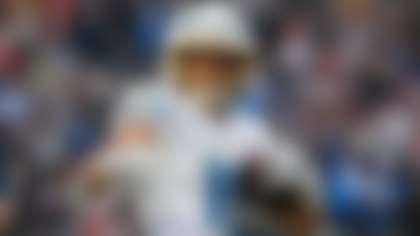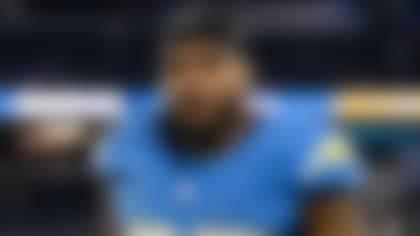NFL chief medical officer Dr. Allen Sills said Tuesday that Miami Dolphins quarterback Tua Tagovailoa exhibited zero injury behaviors and reported zero symptoms "that would have triggered the (league's concussion) protocol" during Sunday's game against the Green Bay Packers.
Dolphins head coach Mike McDaniel announced Monday that Tagovailoa had been placed in the league's concussion protocol after reporting symptoms that day. McDaniel added that it was uncertain at this point if Tagovailoa had indeed suffered a concussion, but he had exhibited symptoms to warrant placement in the protocol.
"What our spotters and our unaffiliated neuro doctors are looking for is any blow that transmits force to the head or neck area, followed by that injury behavior," Sills explained to NFL Senior National Columnist Judy Battista in an interview that will air during Tuesday's NFL Total Access at 7 p.m. ET. "And so, there are many blows to the head that occur during a game. We are always looking for the blow plus the injury behavior and obviously if we see any injury behavior, then there's a call down made to evaluate that player. Also, if a player identifies any symptoms or a teammate, coach, official, anyone else identifies symptoms, that also initiates a protocol. So many people can initiate the protocol and in this game on Sunday, none of those factors were present. There were no visible signs present, even though there was a blow to the head and the player did not report any symptoms, despite being in contact with the medical staff throughout the game. So, there was nothing that would have triggered the protocol in the moment."
Sills added that it is not uncommon for people to present symptoms on a delayed basis, and that Tagovailoa should be commended for reporting his symptoms on Monday.
This is not the first time this season Tagovailoa has entered the league's concussion protocol.
Tagovailoa was taken to Cincinnati-area hospital during a Week 4 game against the Bengals after suffering a concussion on a scary hit in the game's first half. After appearing to hit the back of his head on the turf, Tagovailoa was on the ground with his arms outstretched, contorting his fingers, like a boxer or fighter after a knockout in what is referred to as a fencing response.
That incident occurred four days after Tagovailoa re-entered a Week 3 game against the Dolphins after initially being deemed questionable to return due to a head injury that was later deemed to be a back issue by the Dolphins, which prompted an investigation into the team's handling of the concussion protocol with Tagovailoa. The NFL and NFLPA announced in a joint statement on Oct. 8 that while "the step-by-step process outlined in the concussion protocol was followed, the outcome in this case was not what was intended." An amendment to the league's concussion protocol was made to enhance player safety going forward.
Tagovailoa's history with head injuries this season calls into question his availability for the remainder of the 2022 campaign. Sills was asked if the Dolphins quarterback should be cleared to play again this year.
"Anyone that's diagnosed with a concussion, whether it's their first or second concussion during the season, goes through the same exact return-to-play protocol," Sills said. "Many steps involved in that. They have to return to their asymptomatic baseline with no symptoms, they have to go through a graded exertion protocol again with no symptoms, they have to be evaluated by the team neuropsychologist and undergo neuropsychological testing and that's compared back to their baseline from an uninjured state, they have to be seen by an independent neurologic consultant who evaluates them and makes sure that they agree that they're no longer concussed, and then the team medical staff also has to clear the athlete.
"So that's a multi-step process that is meant to be deliberate and is followed in every one of these cases. And what I would say is that in any case of this nature, the team is going to behave in a very conservative manner. They're going to gather all the data. They're going to make sure the athlete goes through all of those steps. Sometimes they'll even seek outside opinions about that. And then they'll do what we do every day in medicine, which is they'll sit down with the athlete, and they'll explain to him the situation and allow that athlete to have a voice in that decision making. Because at the end of the day our protocol is to make sure that the athlete appears to be recovered, but we still with today's technology can't really estimate that risk of future injury. And so what we have to do is make sure the athlete is fully recovered and then make sure that their voice and their autonomy is respected in this decision-making process.
McDaniel was asked on Monday about his level of concern for Tagovailoa given his injury history.
"I just want guys to really be done right by the information we have, the science and all the medical expertise that we rely on," McDaniel said. "I care very deeply about each and every player. I take that seriously, so I just want him to get healthy and have peace of mind in that regard. That's first and foremost, and then whatever the circumstances are after, you deal with after. It's about the human being and making sure he's squared away."
Backup quarterback Teddy Bridgewater currently is in line to start this Sunday's game against the Patriots.












